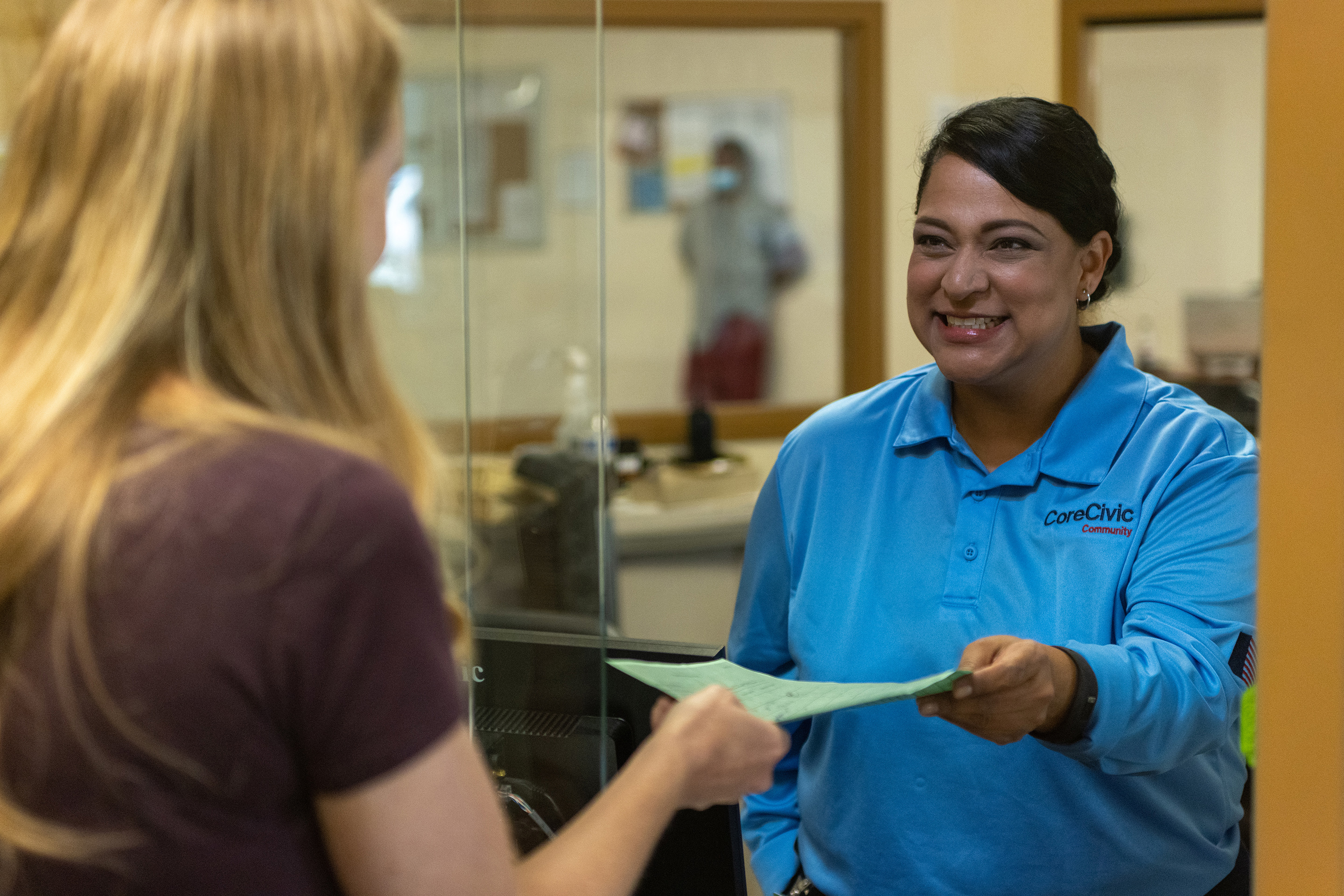
CoreCivic offers a variety of programs to help those in our care prepare for reentry. As part of this preparation, our reentry professionals work with each individual to address his or her unique barriers to reentry and help facilitate a successful reintegration into the community.
"Each person is different and will have their own set of challenges after they leave our facilities," said Matt Moore, senior director of Reentry Services. "That being said, there are a number of programs we provide that teach our residents how to be successful once they reenter their communities."
Our team identified 10 of the most common barriers and concerns for individuals after incarceration and how we are helping those in our care prepare to face those challenges head on.
1. IdentificationA valid ID or driver's license is crucial for former offenders to gain employment, secure housing, and find transportation. Most CoreCivic facilities work with state departments to have representatives visit the facility and provide these documents. In facilities where this isn't an option, our reentry specialists are available to help individuals complete and submit required forms to county, state and federal agencies to expedite the process.
2. BenefitsWhile not all offenders qualify for public assistance like disability, food stamps, or housing assistance, reentry specialists work with offenders to identify and sign up for the types of assistance they may be eligible for once they're released.
3. TransportationWithout consistent transportation, former offenders may have difficulty finding and keeping employment, attending medical appointments, or meeting with their supervision officer. Reentry specialists help residents get bus passes, plan routes using public transportation, or identify friends and family members who can provide transportation until a permanent solution is found.
4. HousingWithout adequate living conditions, returning citizens are more likely to reoffend. CoreCivic partners with charities that specialize in post-release housing for formerly incarcerated individuals to help find safe solutions or identify relatives who would be willing to provide temporary or long-term shelter.
5. Health CareRecently-released individuals often need help tending to their health care needs after release, especially those with chronic health conditions like high blood pressure or diabetes. CoreCivic discharge planners go over prescription lists, refer individuals to health care providers and help set up appointments prior to release.
6. SobrietyWithout professional support, recently released individuals with substance use disorders are at a heightened risk of returning to drugs and alcohol. Our reentry professionals help identify local support groups to provide guidance, assistance, and mentorship to stay sober.
7. FamilyReuniting with loved ones can be challenging yet exceptionally rewarding, often providing new motivation to find work, avoid destructive behaviors, and develop positive relationships with children. Many CoreCivic facilities offer programs to help the individuals in our care build and maintain relationships with family members, teach role modeling skills, and address communication issues.
8. EducationEducation not only improves quality of life, but it also helps us qualify for better work opportunities. CoreCivic facilities offer GED/high school equivalency courses, career technical certificates in high-demand fields like computer coding and carpentry, and even college degrees through partnerships with colleges and universities. Gaining these skills can mean the difference between living productively and returning to criminal behavior patterns.
9. EmploymentFinding and maintaining a job can make all the difference in keeping a justice-involved individual from returning to prison. Our reentry specialists help them develop critical skills such as resume writing and interviewing, as well as "soft skills" like handling peer relationships and stress on the job. In many facilities, potential employers are invited to job fairs where they can discuss job opportunities directly with those nearing release.
10. FinancesUpon release and finding employment, former offenders soon find themselves responsible for the cost of housing, utilities, and other various obligations. CoreCivic provides a variety of programs to help prepare individuals for these situations by teaching practical life skills, such as budgeting, how to open a bank account, and how to apply for and manage credit.
When these 10 essential needs are addressed prior to release, former offenders experience a smoother transition back to the community, and they are less likely to commit new offenses or violate supervision requirements. By providing the proper tools for success, CoreCivic is paving the way to a brighter future for all those in our care.
